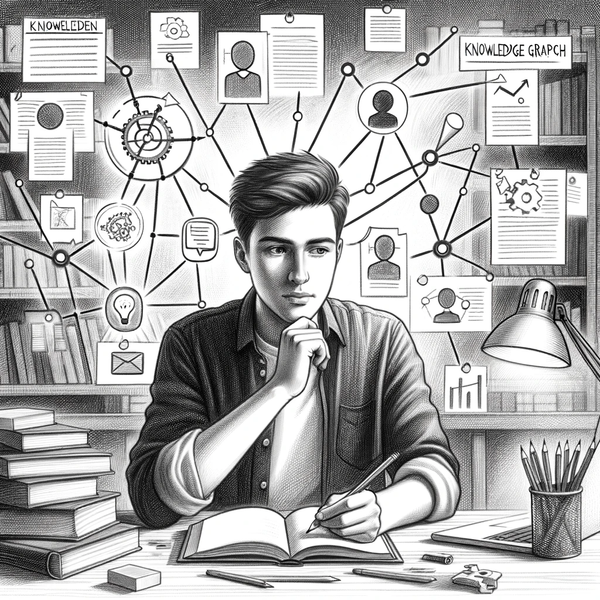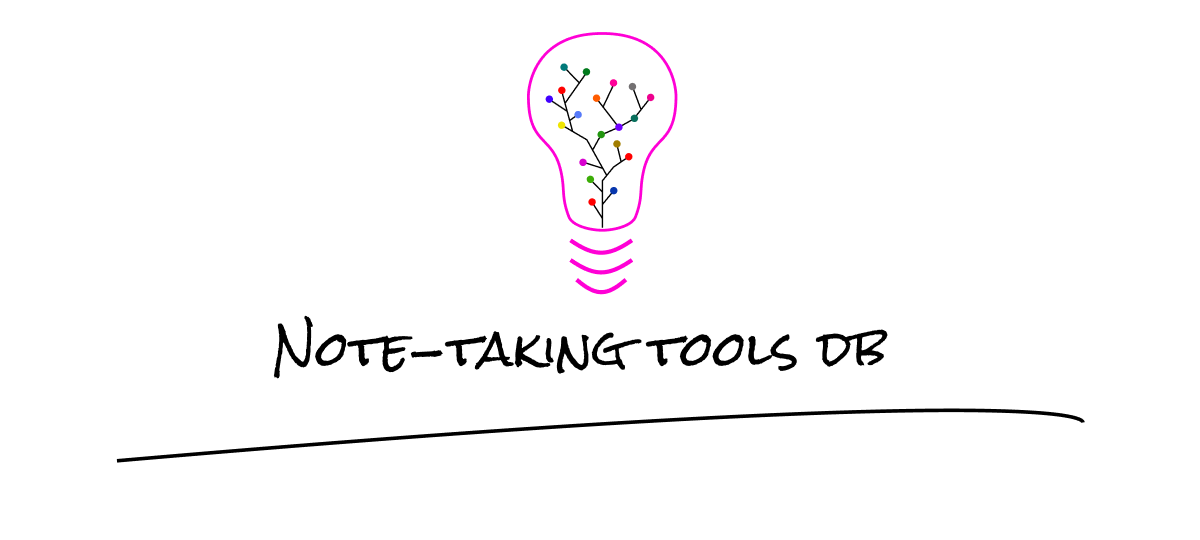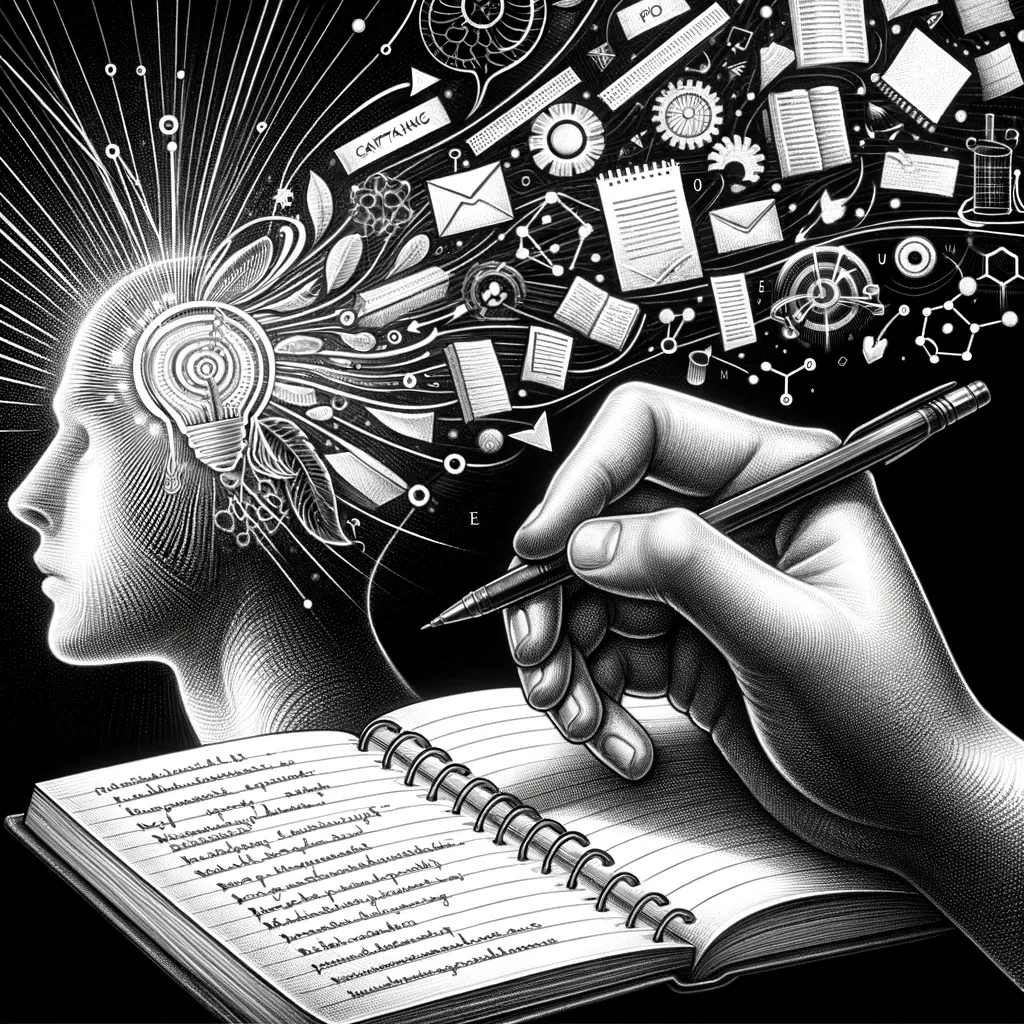You Need a Fourth Place: A Space to Think
You need a place for deep thinking, a personal "sanctuary". A Fourth place. Here's why.

We all need space. Space to live, act, express ourselves, exchange, and to think! We all need a Fourth place, a place to think, introspect, plan, review, organize, and grow.
Introduction
Our world is CRAZY. The pace keeps accelerating, and it's exhausting. We're all under attack. Everyone wants our attention. Our mental space shrinks by the minute... That's a given. But what can we do about it, apart from disabling notifications, or living in a forest with no Internet connection?
Well, we can (should!) design a Fourth place for ourselves. A place where we can be alone with ourselves and our thoughts and ideas. It's not hard to do. But first we have to understand why we really need such a place, and how to design a great one.
That's what I'm going to help you with in this article. I will make parallels with sociology, but I really want to focus on thinking and Knowledge Management. So, bear with me.🚀
The Three Places We Already Have
In his book "The Great Good Place", Ray Oldenburg has argued that there are two main places in our lives, "home" (the first place), and "work" (the second place). In addition, he also described a third place: the communities we are a part of. Those are separate from the first two. Third places are really important for society, democracy, civic engagement, the sense of belonging, etc.
The first place is our "home", family, and friends. Usually, it's a source of joy and happiness. That's where we long to be. With the people we love and care about. That's where we can truly be ourselves, share ideas, have fun, relax, and enjoy life.
The second one is the workplace, where we spend a big portion of our time, develop our skills and expertise, express our creativity, and (hopefully) focus on interesting projects.
The third one is composed of all the communities we're a part of, fostering creativity and social interactions. That's where we connect with people sharing our interests, develop new friendships, and experiment with various activities. Communities are where we "relax" in public. They help us relieve stress, change our minds, etc. Those are informal places, physical or virtual. In communities, conversations are at the center of everything. Most importantly, communities transcend home, work, and various boundaries.
If you combine home and work, you get co-living spaces. If you combine work and communities, you get co-working spaces. If you combine home and communities, you get comingling spaces. But are those enough? Aren't there more "places" to consider? Well, I'm not the only one to think that we need at least a fourth place.
For some people, such as Arnault Morisson, a Fourth place is the combination of home, work, and communities. The result is a space where you live and work. The physical location itself then becomes the third place. And that's an interesting and valuable sociological idea.

For others, Fourth places are "public settings for informal interaction among strangers" (i.e., bringing strangers together). Those do exist as well, and deserve to.
Last but not least, people such as Patricia Mou, Fourth places should "incite the condition by which people find their own meaning, together and alone". And I LOVE that idea.
All the possible combinations of classical "social" places are specific to sociology. And yes, there are many combinations we can, and should imagine. But there's a missing piece in that puzzle...
In this article, I want to focus on "you", the individual. Individuals also need a place for themselves, a place to think, introspect, plan, review, organize, and grow. Do you have one? Where is it? Is it in one physical or virtual location? Is it "big" enough? Did you take time to actually design it? Do you take care of it like you do in your other places? Do you make the best of it?
First, let me clarify what the fourth place is, according to me.
What is the Fourth Place?
To me, the Fourth place is a combination of many physical and virtual spaces, as well as activities (!), that you can use to be alone with yourself, and THINK.
Some examples of locations and spaces that make up my own Fourth place:
- My BRAIN, where I think "lightly", with limited computing power, limited working memory (and random access 😂)
- My Personal Knowledge Management System, and Tool for Thought, where I can truly think deeply and connect all the dots
- My home office, where I can think calmly in front of a piece of paper or whiteboard
- My workplace, where I can (sometimes) think deeply and solve problems
- My car, where I can speak to myself and express ideas freely
- My bed, where I can solve problems while I'm asleep
- My shower, where I can think about the next steps
- My couch, where I can think about NOTHING for a minute
- Everywhere I walk, which enables me to silence the noise, and think more broadly/more deeply
- All the communities I'm lurking in, where I can think more deeply about certain topics, without necessarily interacting with others (this includes social media, Hacker News, Discord, and many physical locations)
- ...
The list is actually much longer. That's just what my working memory has given me right now. My Fourth place is highly distributed. It's a "meta" place, but it definitely exists. It is spread across my first, second and third places. And it goes BEYOND that. It transcends various boundaries. We actually get in and out of the Fourth place all the time.
The Fourth place is where EVERYTHING comes together. Life, work, identity, relationships, emotions, health, problems, conflicts, pain, values, goals, projects, plans, priorities, tasks, etc.

A few characteristics of the Fourth place:
- Focuses on YOU
- Supports different modes of thinking
- Enables capturing thoughts, ideas, information, knowledge, and inspiration
- Supports for distraction-free thinking
- Enables deep thinking
- Requires Tools for Thought
A Fourth place has many benefits, that strengthen and have more impact when that place is properly designed and taken care of:
- You suffer much less from Information overload
- You learn better and retain more
- Your mental health improves
- You make better decisions
- You become more creative
- You forget intentionally instead of unintentionally
- ...
But there's a catch. Without proper design, your fourth place will be a MESS. And you need to fix that. A fourth place is distributed by nature, but centralization has MAJOR benefits (ask serious IT people, and they'll tell you).
Let's dive deeper into the rabbit hole...
Why and How to Design your Fourth Place
So, the Fourth place is where you THINK. But why do you need to design it? To help you free your mind, and think more deeply.
Thinking deeply cannot and should not rely on your brain alone. As the saying goes:
Your brain is for having ideas, not holding them
What does this mean? It means that you need to externalize way more than you probably do. It's not only a best practice for mental health and emotions regulation. It's also an enabler for deep thinking and growth. Okay, but what does this mean in practice? It means creating and relying on a system that supports your thinking, in various situations. A system that you can use to store and retrieve information, knowledge, wisdom, ideas, thoughts, projects, tasks, and more!
Your Fourth Place becomes much more valuable with...
- A capture system to DUMP whatever deserves to be remembered. That way, you can free your mind, close open loops, save mental contexts, and basically never forget anything (seriously!)
- A Tool for Thought, giving you a way to easily resurface your knowledge: The goal is to be able to RETRIEVE whatever you have decided to remember forever, when you need to
- A Knowledge Management process
Your capture system will help you record and keep track of everything: ideas, thoughts, discoveries, learnings, inspiration, lessons learned, etc. It will free your mind from the burden of having to remember everything. This will help you focus on what matters: the present moment. It will enable you to forget intentionally. You won't care about forgetting because you will have a system that remembers for you. A system that you can trust.
Your Tool for Thought (TfT) will let you locate and retrieve whatever you have captured. Easily, and efficiently. It will not only enable you to remember whatever you want forever, but it will also help you think more deeply. That's why I have mentioned it in the list of what composes my Fourth place. It's not only about information storage and retrieval, but also about deep thinking and deep work. When you spend time alone in front of your Tool for Thought, you'll be ready to think, without suffering from the limitations of your primitive brain (i.e., limited working memory and fuzzy retrieval).
At this point, if you're not familiar with the topic, you probably wonder what a "Tool for Thought" is. Don't be afraid, it's nothing complicated. A Tool for Thought is basically a note-taking application on steroids. Those really go way beyond what classic notes and note-taking apps can do. With a Tool for Thought such as Obsidian, you can create notes, link those together, discover backlinks (i.e., which other notes mention the current one), see those as a graph, create visualizations on an infinite canvas, search, embed information from the Web, use AI, add metadata and tags, and much more. The best Tools for Thought are also pervasive. They're available everywhere. On your phone, tablet, desktop or laptop, etc. As Tiago Forte puts it, they enable creating a "Second Brain" of sorts. Ain't it a nice idea? You could certainly use a second brain too!
Last but not least, having a clear process will multiply the Return on Investment of your Fourth place. The process will clarify how to explore, curate, consume, capture, distill, organize, connect, develop, create, and share whatever you care about. There's a method to the madness.
If you combine a capture system, a Tool for Thought and a clearly defined process, then you get what is called a Personal Knowledge Management system.
I really want to convince you that you absolutely, 100%, without a single doubt, NEED a Personal Knowledge Management system in your life. No matter what you do. You need one, whether you're a single stay-at-home mom, an entrepreneur, a solopreneur, a knowledge worker, a journalist, a thinker, an author, a dentist, a psychologist, a researcher, a student, etc. Whatever you do in life (or don't), a Personal Knowledge Management system will be valuable to you. And the value of that system compounds over time. That is, assuming that you design one properly, and actually leverage it.
Convinced yet? I have good news. There's something called Personal Knowledge Management (PKM), that focuses precisely on this topic. And you know what? I'm really passionate about Knowledge Management. I want to guide you to implement the perfect system to support your thinking. I do it through all the means at my disposal: blog posts, newsletters, courses, videos, coaching, workshops, and more. I want to help as many people grow as I can. Why? Because I deeply believe that humanity needs this. And education is the one way to help people discover the topic, "see the light", and get the benefits.
You can find my articles on this topic here:

Where to go from here?
Now that you know what a Fourth Place is all about, I want you to consider taking care of your own. You already have one. You rely on it every single day. You're just not paying attention to it, not giving it the love it deserves. The problem is that by not designing a great one and not leveraging Knowledge Management practices, you are really missing out. Your brain is unreliable. You suffer from information overload. You forget things. You are disorganized. You are stressed because everything stays in your mind. You rarely get to be "In the zone" and do your best work. It's overwhelming, tiresome, exhausting even.
Properly designing your Fourth place will empower you. Take some time to think about it. Read some of my articles. Understand the Knowledge Management process. Start simple, and grow from there. You owe it to yourself.
First and foremost, acknowledge the fact that you need to develop that space for yourself. Take TIME to think. Take long walks on your own. This already goes a long way to helping you be with yourself, beyond the obvious health benefits.
Second, make sure to create better physical spaces for you to think. A quiet place at home where you can be at ease, a clutter-free environment, etc.
Then, my advice is to choose a Tool for Thought. That's step one. I always recommend Obsidian, because of... reasons, but you may choose a different one. I have shared a free database of such tools:

But don't stop there. Once you have a trusted tool where you can centralize knowledge and ideas, you need to develop a capture system, and a clear process. I have written about the capture habit before:

I'm now working on a course to explain it further, as well as the Knowledge Management process, which is where the real power lies:

The combination of a Tool for Thought, a capture system and a Knowledge Management process is what will enable you to become the best version of yourself (no kidding!).
People ask me how I organize myself, how I remain focused and productive, how I'm able to always keep a smile on my face. Well, it's partly due to the fact that I take good care of my Fourth place. It helps me grow, take better care of myself, make more conscious choices, have a clear direction, and make better decisions.
Conclusion
In this article, I have discussed the classical "places" we are used to: home, work, and communities. Then, I described my vision of what the Fourth place really is, and why you need to design yours. I highlighted the main elements to consider, the characteristics, the benefits, and the "how".
Personal Knowledge Management is not a productivity "hack". It’s a fundamental skill for mental health, personal development and professional growth.
Now stop relying on your mind alone, and go design an awesome Fourth place for yourself. 🚀
That's it for today ✨
References
- Third place: https://en.wikipedia.org/wiki/Third_place
- The Great Good Place: https://en.wikipedia.org/wiki/The_Great_Good_Place_(book)
- Ray Oldenburg: https://en.wikipedia.org/wiki/Ray_Oldenburg
- Arnault Morisson, A Typology of Places in the Knowledge Economy: Towards the Fourth Place: https://papers.ssrn.com/sol3/papers.cfm?abstract_id=3056754
About Sébastien
I'm Sébastien Dubois, and I'm on a mission to help knowledge workers escape information overload. After 20+ years in IT and seeing too many brilliant minds drowning in digital chaos, I've decided to help people build systems that actually work. Through the Knowii Community, my courses, products & services and my Website, I share practical and battle-tested systems. You can follow me on X 🐦 and on BlueSky 🦋.
I am an author, founder, and coach. I write books and articles about Knowledge Work, Personal Knowledge Management, Note-taking, Lifelong Learning, Personal Organization, and Zen Productivity. I also craft lovely digital products.
If you want to follow my work, then become a member and join our community.
Ready to get to the next level?
If you're tired of information overwhelm and ready to build a reliable knowledge system:
- 🎯 Join Knowii and get access to my complete knowledge transformation system
- 📚 Take the Course and Master Knowledge Management
- 🚀 Start with a Rock-solid System: the Obsidian Starter Kit
- 🦉 Get Personal Coaching: Work with me 1-on-1
- 🛒 Check out my other products and services. These will give you a rock-solid starting point for your note-taking and Knowledge Management efforts





